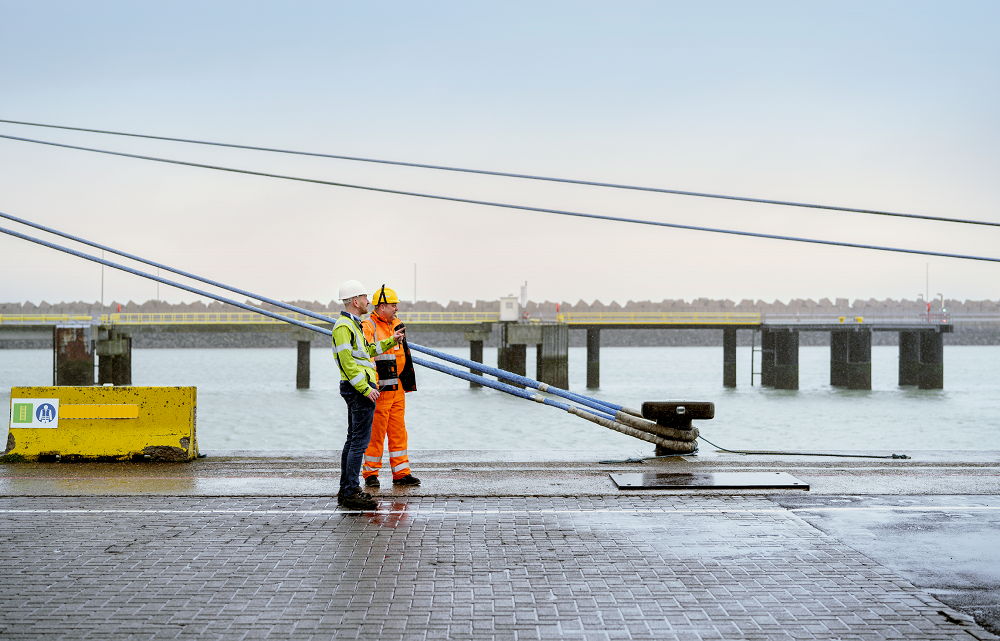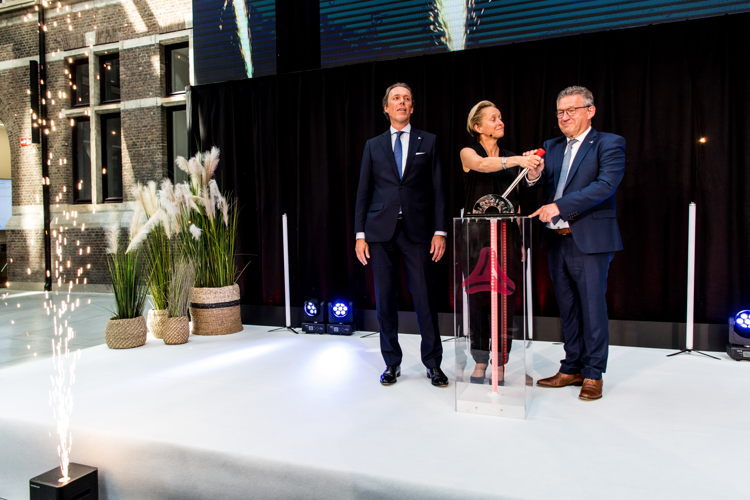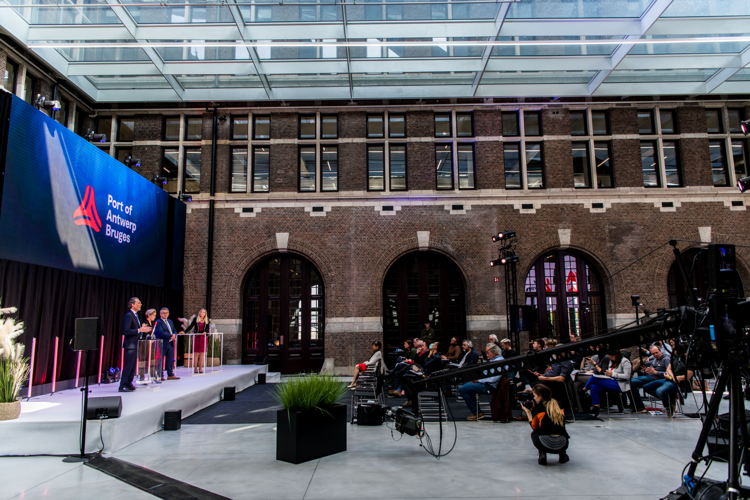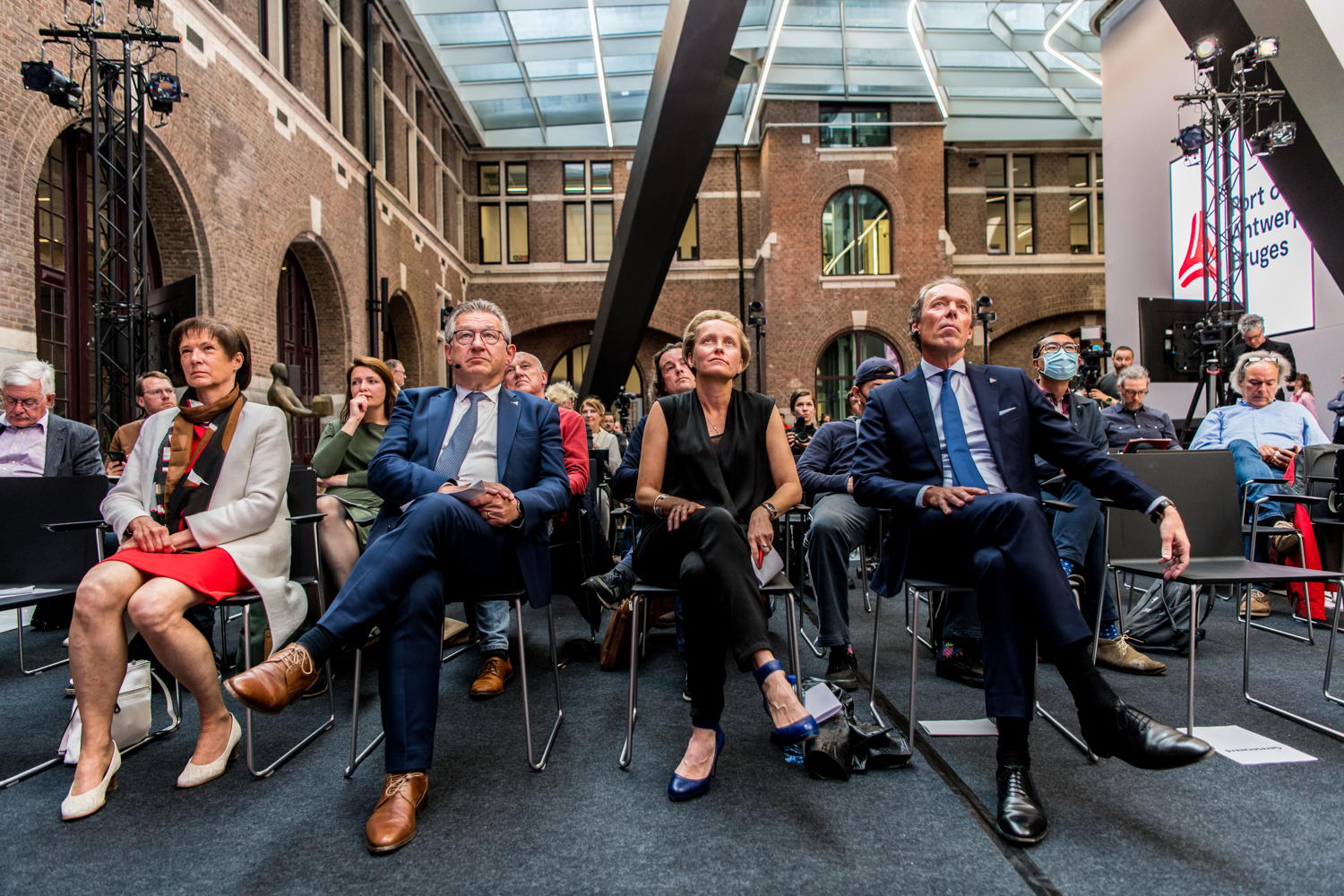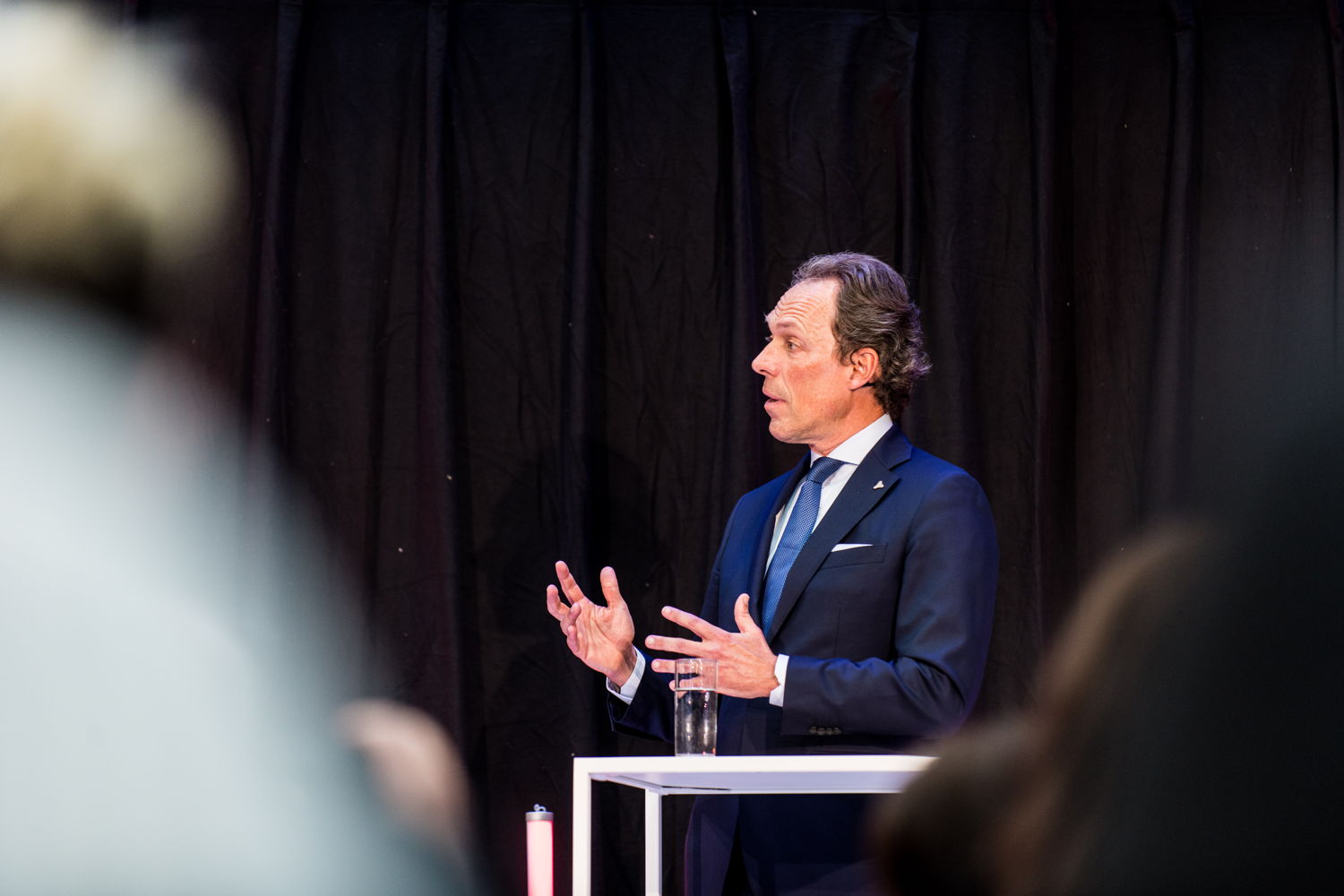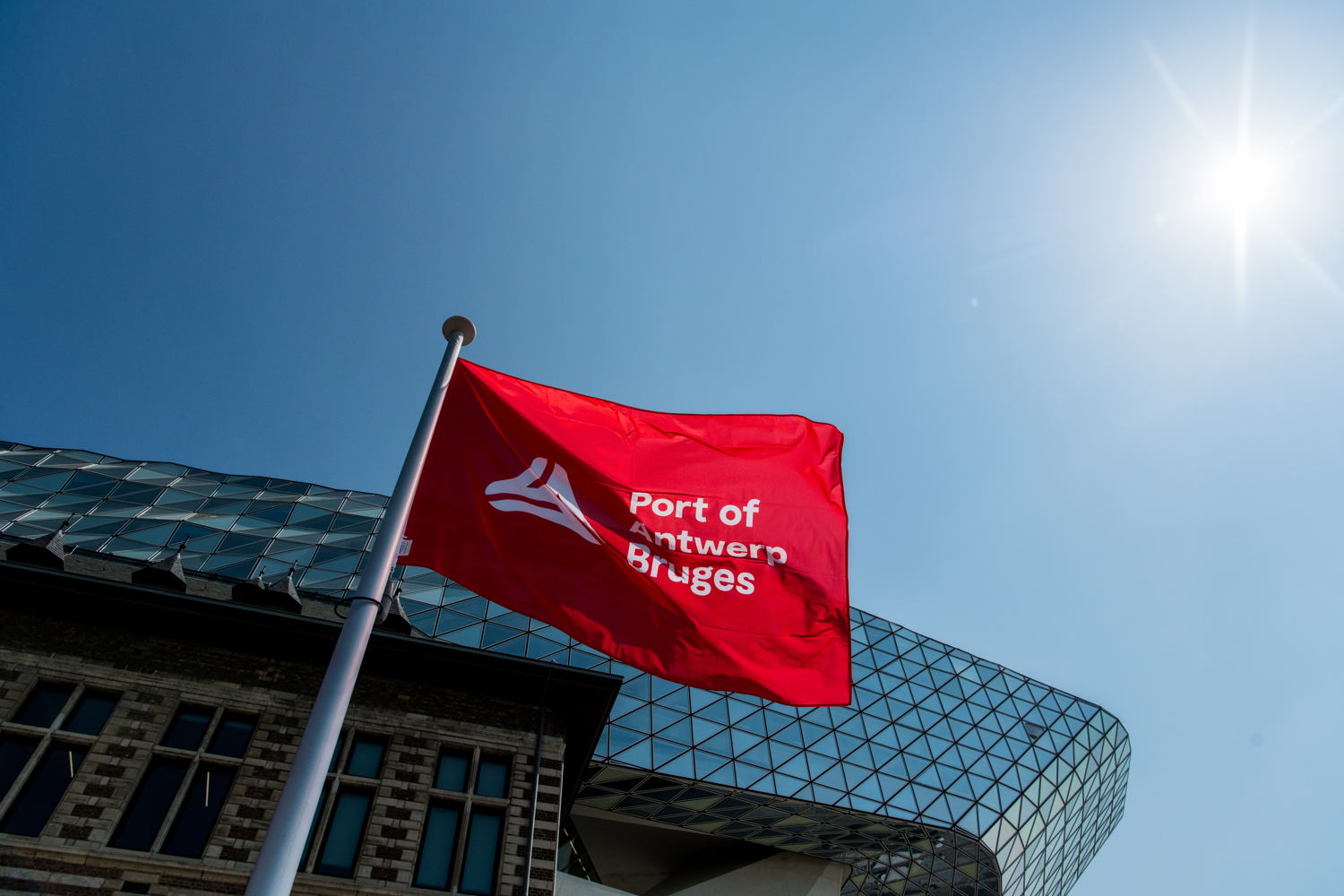Port of Antwerp-Bruges: merger of the ports of Antwerp and Zeebrugge creates Europe's largest export port
Unified port takes lead in transition to sustainable future
The ports of Antwerp and Zeebrugge will from now on continue their growth trajectory under one name: Port of Antwerp-Bruges. At the extraordinary general meeting of 22 April 2022, the two cities signed the shareholders' agreement of the unified port company. Today, Port of Antwerp-Bruges is sharing the concrete manifestation of its ambition - to become a world port that reconciles economy, people and climate - with the rest of the world.
Large-scale but sustainable ambitions
In February 2021, the City of Antwerp and the City of Bruges announced the launch of the merger process for their respective ports. Followingthe signing of the shareholders' agreement of the unified port company on 22 April 2022, the ports of Antwerp and Zeebrugge will operate under one name going forward: Port of Antwerp-Bruges.
Today, this unified port provides no fewer than 74,000 direct and 90,000 indirect jobs and with an added value of nearly €21 billion or 4.5% of Belgian GDP, is by far the largest economic engine in our country. Europe's largest export port, the Port of Antwerp-Bruges will also be the largest throughput port for vehicles, the largest integrated chemical cluster and one of the leading container ports in Europe.
Port of Antwerp-Bruges has the express ambition of becoming the first global port to reconcile economy, people and climate. The unified port plans to further strengthen its position in the international logistics chain, take a leading role in the energy and digital transition, and at the same time create sustainable added value for society as a whole. Not just for the area of Antwerp and Zeebrugge, but also for all possible stakeholders in the wider national and international region.
Strengthening the global position in challenging times
In the current geopolitical and macroeconomic context, the merger is a golden opportunity to put the Antwerp and Zeebrugge port sites, and by extension Flanders, in an even stronger position on the world map. Port of Antwerp-Bruges will capitalise on the strengths of both port locations and focus its strategy on containers, breakbulk, RoRo traffic and chemicals. More than ever, Port of Antwerp-Bruges will play a crucial role in major freight flows and reinforce its position as one of the main gateways to Europe. The unified port has also become Europe's largest export port - with 147 million tons/year - making it a global heavyweight.
As a leading container port by tonnage - with 159 million tons/year - Port of Antwerp-Bruges aims to meet the need for container capacity due to global growth and recent developments in the international logistics chain. In parallel with the implementation of the Extra Container Capacity Antwerp (ECA) project, Port of Antwerp-Bruges is working on a 'Container Plan 22-30' to safeguard its competitive position. Elsewhere, Port of Antwerp-Bruges continues to invest in strategic infrastructure including the Europa Terminal in Antwerp, as well as the New Lock and the Maritime Logistics Zone in Zeebrugge.
By focusing on bolstering interconnectivity between the Antwerp and Bruges sites and achieving economies of scale in the area of digitisation, the unified port will contribute to the efficiency, reliability and sustainability of the logistics chain. In short, Port of Antwerp-Bruges has all of the tools at its disposal to play an increasingly important role on the global logistics stage.
Port of Antwerp-Bruges will combine the best of both worlds and will focus on the strengths of each site. The ports of Antwerp and Zeebrugge are largely complementary – for example, Antwerp has strengths in the handling and storage of containers, breakbulk and chemical products, while Zeebrugge is a major port for RoRo traffic, container handling and the transshipment of liquid natural gas. By working more closely together, the sustainable growth of the individual and combined market shares of both ports will be perpetuated.
Pioneer in hydrogen and CO2 reuse
Port of Antwerp-Bruges intends to anchor its position as a green energy hub and help shape the energy transition towards a sustainable future. The unified port will continue and extend its pioneering project for the capture, storage and reuse of CO2. Via Antwerp@C, the first 2.5 million tons of CO2 will be captured from industry on the port by 2025. This CO2 will be stored and eventually reused as a raw material for a wide range of applications.
In addition, the combination of Antwerp's position as the second largest petrochemical cluster in the world and the coastal position of Zeebrugge provides a unique opportunity to take a leading role in the roll-out of the hydrogen economy. By 2028, Port of Antwerp-Bruges plans to have the capacity to receive the first green hydrogen molecules on its platform. To this end, it is working to expand terminal capacity for existing and new hydrogen carriers at both port sites. A hydrogen pipeline between the two sites and towards the European hinterland will ensure that the port area as a whole and, by extension, Belgium and a large part of Europe, can make use of this important carrier for renewable energy.
Finally, Port of Antwerp-Bruges will offer various peerless strengths in innovation and digitisation that will make the logistical chain not only more efficient, but also safer and more reliable. By combining forces and focusing on connection and collaboration, and thanks to strategic investments, Port of Antwerp-Bruges and, by extension, our society, will be able to meet the challenges of the future.
You can watch the recording of the press conference on 28 April 2022 here.
Annick De Ridder, Vice-Mayor of the City of Antwerp and President of the board of directors of Port of Antwerp-Bruges: "The unified port is not only the economic engine of Flanders, buttogether, the ports of Antwerp and Zeebrugge will also form the largest export port , largest throughput port for vehicles, and the leading chemical hub in Europe! At the same time, Port of Antwerp-Bruges has major ambitions to become the energy gateway to Europe as a 'green port'. In short, Flemish economic history is being written here today".
Dirk De fauw, Mayor of the City of Bruges and Vice-President of Port of Antwerp-Bruges: "As Mayor of the City of Bruges and Vice-President of the Port of Antwerp-Bruges, I am convinced that this merger will lead to sustainable growth in economic activity and jobs in both sites, and boost Flanders' international reputation around the world. Together, we are stronger".
Contact Details
- Press contact City of Antwerp: Joost Houtman, +32 486 47 50 56
- Press contact City of Bruges: Dieter Grammens +32 50 44 81 00
For factual information about the port: Port of Antwerp-Bruges press line: +32 492 15 41 39
Factsheet Port of Antwerp- Bruges
PDF 927 KB
